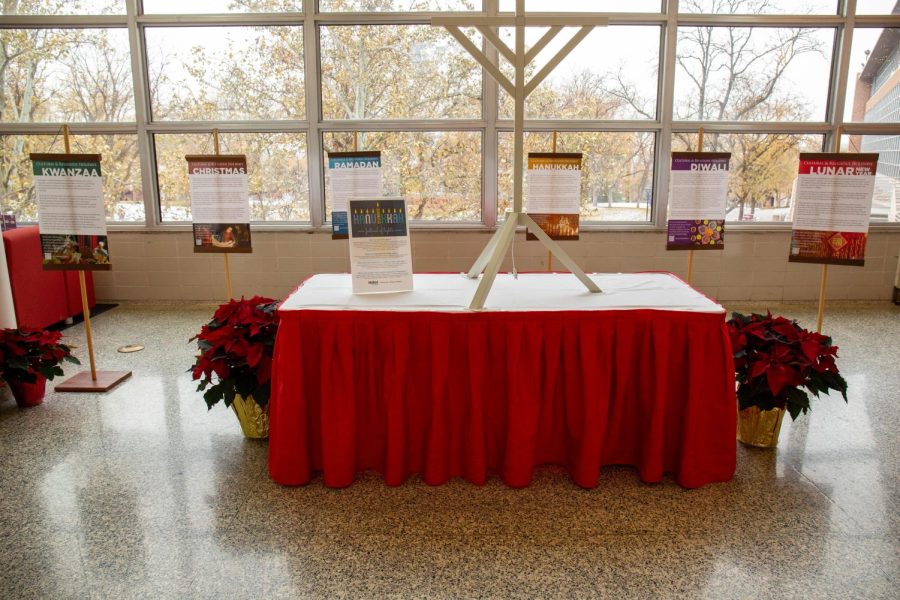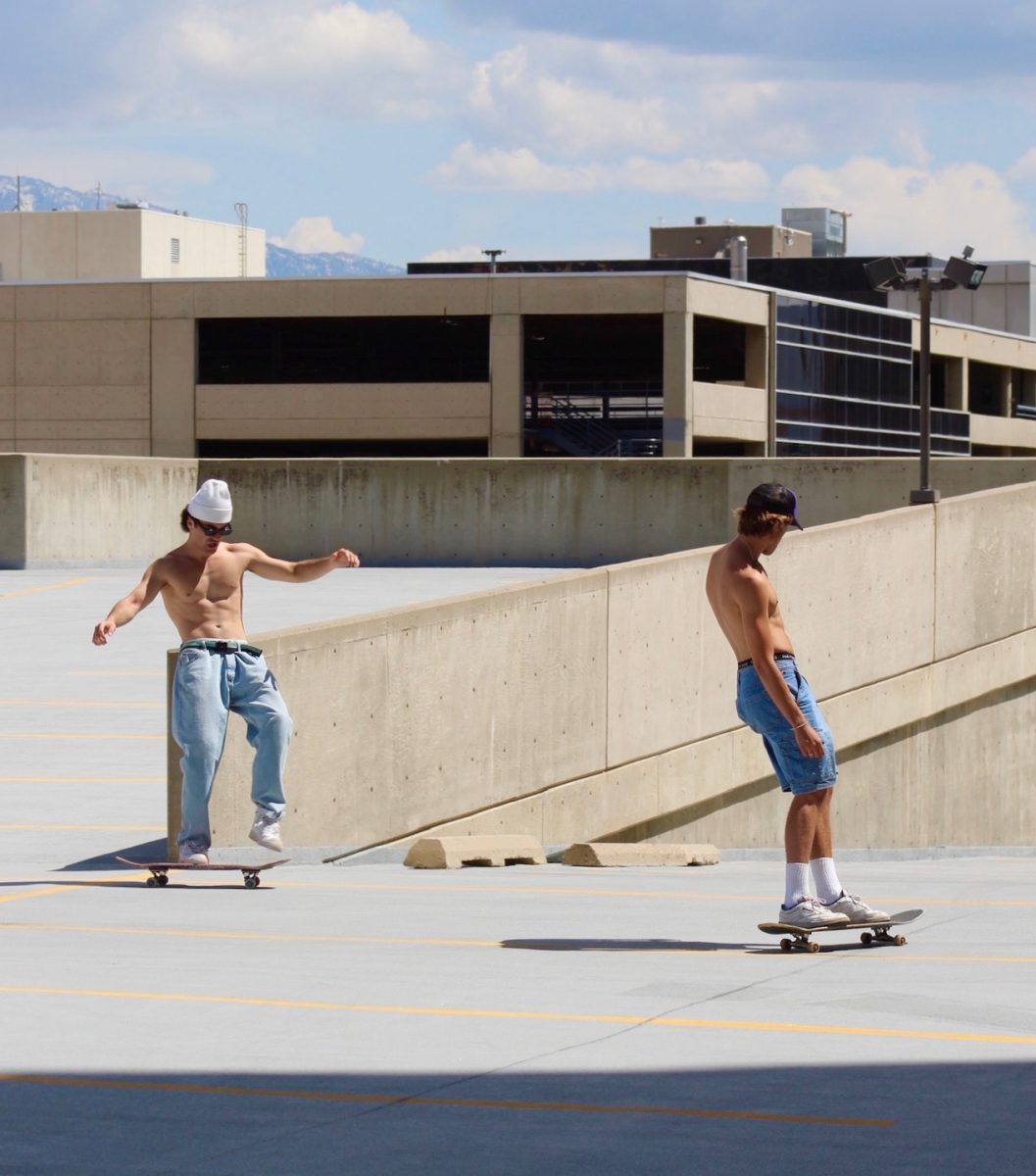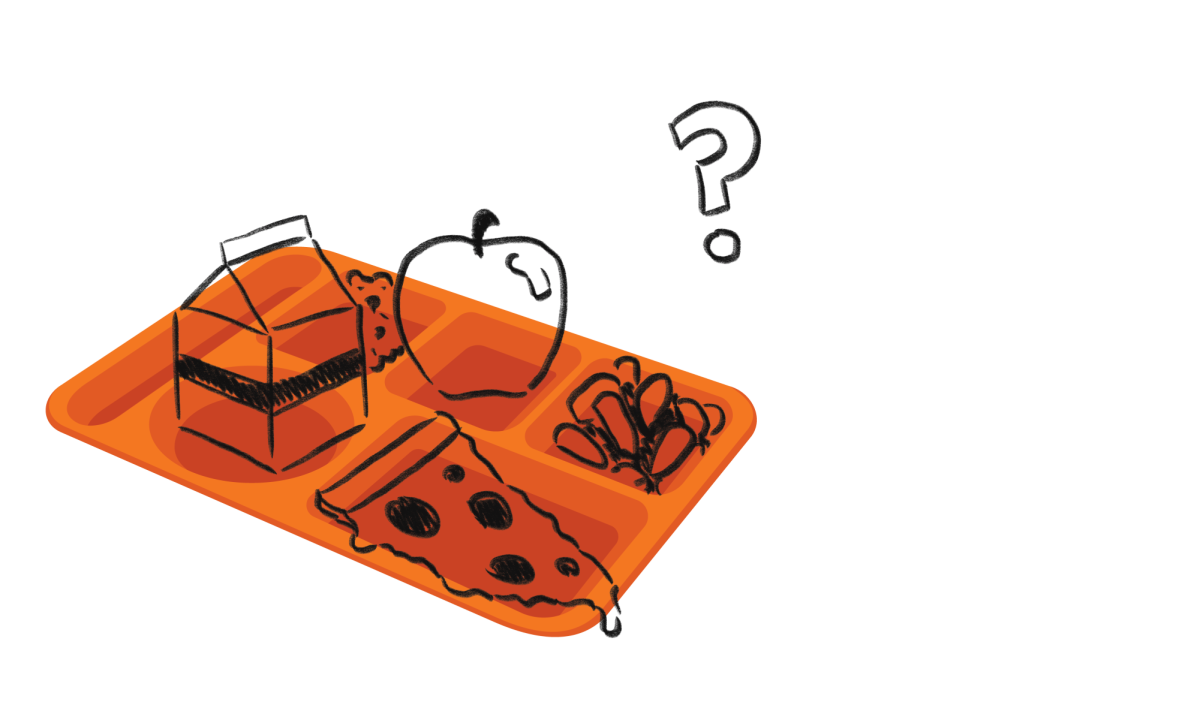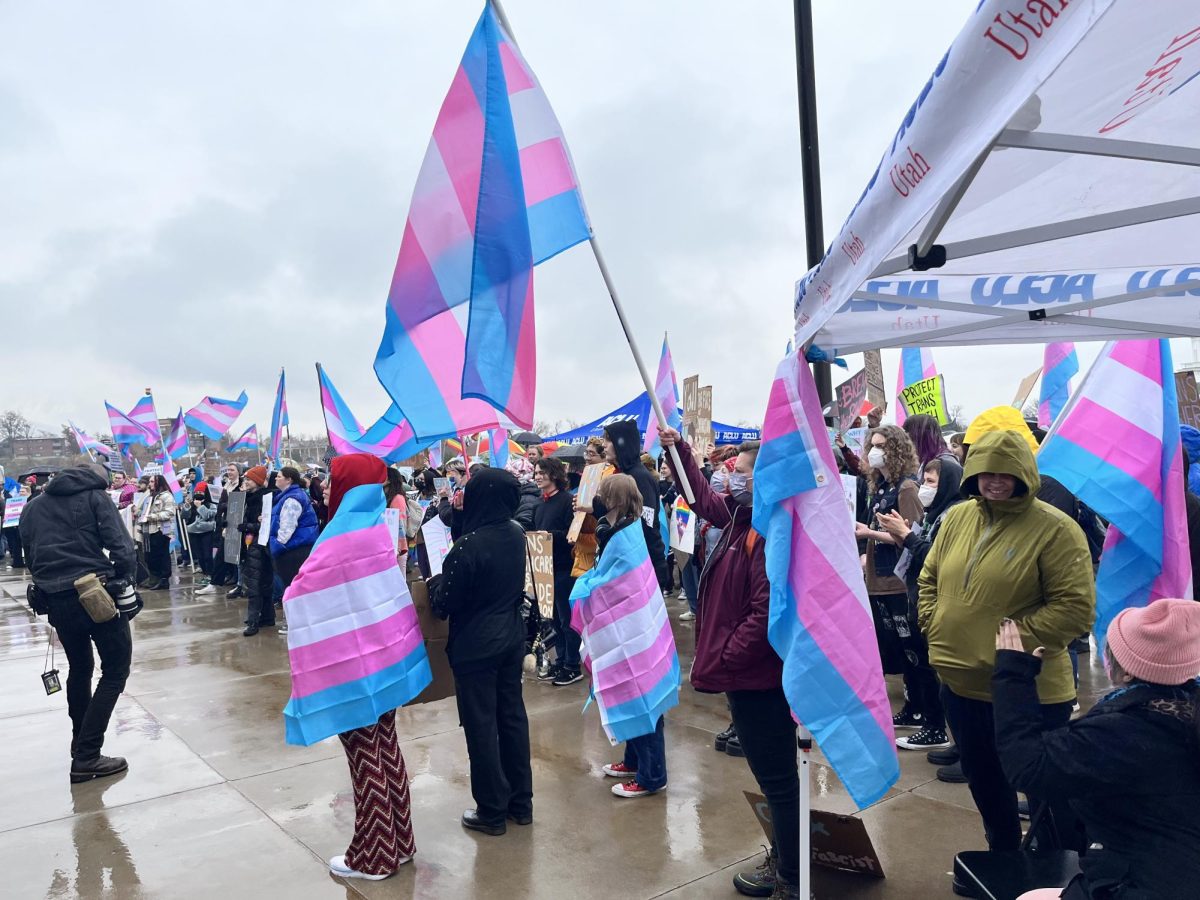U Students Prepare to Celebrate the Holidays In Various Ways
Cultural and Religious Holidays mini banners and decorations in the Union Building at the University of Utah, Salt Lake City, on Dec. 5, 2022. (Photo by Amen Koutowogbe | The Daily Utah Chronicle)
December 18, 2022
As winter sets in, many students at the University of Utah are preparing to celebrate the holidays with their family and friends. Beginning in November, students may have seen a display in the A. Ray Olpin Union Building that shows the wide array of holidays celebrated by campus community members. The display, which included Hanukkah, Christmas, Kwanzaa, the Lunar New Year, Diwali and Ramadan, was sponsored and set up by Interfaith at the University of Utah, whose goal is to promote understanding and dialogue between the various faiths on campus. The display included information on all the holidays mentioned.
Christmas
Christmas is the Christian holiday celebrating the birth of Jesus Christ, but the holiday has become ingrained in American culture separate from Christianity. Many students celebrate Christmas, and many of them have varying traditions regarding the holiday.
For Jacob Bastian, second-year biology and psychology major, most of his Christmas traditions revolve around Christmas Eve. He and his family wrap presents, watch Christmas movies and read the children’s book, “Why Christmas Trees Aren’t Perfect.” He also gets new pajamas on Christmas Eve, which he said is his favorite Christmas tradition.
“It just makes you feel all warm and cuddly,” he said. “Like you’re ready for the holidays.”
For Bastian, Christmas is the only major religious holiday he celebrates, but he understands the importance of recognizing all holidays and cultures.
“I think it’s important because there are different cultures and religions and traditions, and just because it’s not the dominant one doesn’t mean that it’s not important,” he said. “I think that everyone’s traditions are significant.”
Hanukkah
Hanukkah is the eight-day Jewish celebration of the festival of lights. It celebrates the victory of the Maccabees over the Syrian Greek army and the rededication of the temple in Jerusalem by restoring its menorah. In the story of Hanukkah, there was only enough oil to light the temple for one day, but it miraculously lasted eight full days, which is where the eight-day length of Hanukkah comes from. This is also where the primary celebration of lighting one candle on the menorah each night of Hanukkah originates.
“It’s always been just like a time that’s meant to be celebration and happy and just like being together with family and friends,” said Abigail Traxler, fourth-year biomedical engineering major and Jewish student at the U. “For me, Hanukkah has been a holiday I often try to spend with my family.”
She added this is sometimes difficult to do because the Jewish calendar does not always line up with academic calendars, and she is unable to travel home to light the menorah with her family. “So I do it here, and I have my own faux menorah, and I chat with friends,” she said.
Traxler said while the U does a good job of recognizing diverse holidays and being flexible with students who celebrate them, there is still work to be done. “It’s also like one of those things where I have to be the one to reach out and take that first step,” she said. “There are some small things in the university that will mention it, but it’s not like they’re actively being like, ‘be aware of this.’” She added, for example, she’s had Jewish friends who’ve had exams scheduled on Yom Kippur, the holiest day in Judaism.
For Traxler, the parts about Hanukkah that she’s enjoyed the most over her life have to do with food. “The food is a big part for me because I come from a family who really loves food,” she said. “My favorite tradition always was latkes.” Latkes are a type of potato pancake that are commonly made in celebration of Hanukkah. Traxler added that they are her favorite part of Hanukkah, in part because her dad was so good at making them growing up and all her friends would come over to her house to enjoy them.
The Lunar New Year
The Lunar New Year, also called Chinese New Year, begins on the first new moon of the lunar calendar and ends on the first full moon of the lunar calendar, 15 days later. It became known as Chinese New Year because it is primarily celebrated in China and other Asian countries where the lunar calendar is used. Celebrations include dances, fireworks and a lantern festival on the final day of the festivities.
“My sisters and I, there’s three of us, we’re all adopted from China,” said Savanah Kirkman, fourth-year Chinese major. “So Chinese culture has always been a big part of my life, and as I got older, my family didn’t really celebrate Chinese New Year just because it was kind of hard. My family’s American, even though we’re all Chinese, really.”
When Kirkman was a sophomore in high school, though, she began to do more research into the holiday and got her family on board with celebrating it. “It’s just now something that is tradition in our family,” she said. “And it’s kind of like Christmas, in a sense that we all get together again and just spend that time together, and so I just love that time because of my family.”
Kirkman’s family is American, and she said that their Lunar New Year celebrations are also fairly Americanized. They get together with a neighbor’s family, and she shares a Chinese legend with everyone. They do a craft project with all the kids and eat a traditional Chinese meal and dessert. However, Kirkman added that the celebration also acts as an opportunity for her to reconnect with her Chinese heritage.
“Chinese New Year is fun for me because I get to take the time to go and read a bunch of stories and to learn a bunch of new recipes, and so I just feel like I’m getting closer with my culture, even though I’m living in Utah,” she said. Another thing she really enjoys about Chinese New Year is getting to share her culture with her neighbors, who she describes as “cowboys and farmers.”
“It was just fun to share my culture because it was an entirely new culture to them,” she said. “And now, at this point, these little kids, I’ve taught them some Chinese, and they know the stories and they can rattle off some things about Chinese things.”
More Holiday Celebrations
Kwanzaa is an African-American celebration of life that occurs between Dec. 26 and Jan. 1 every year. It was founded in 1966 by Maulana Karenga, a professor of Africana studies at California State University. His goal was to give African-Americans an alternative holiday to the predominantly celebrated holiday of Christmas as well as a chance to celebrate their heritage and identity. There are seven principles of Kwanzaa — unity, self-determination, collective responsibility, cooperative economics, purpose, creativity and faith — and each of the seven days of the celebration is dedicated to one of the principles. Kwanzaa is associated with black, green and red, “representing the Black people, the land of Africa and the bloodshed in the struggle for freedom,” according to the section on Kwanzaa in the Union display. Celebrations of Kwanzaa include lighting one of seven candles on each of the seven days and a communal feast, called the karamu, celebrated on Dec. 31.
Diwali, celebrated in October or November, is a five-day festival of lights in the Sikh and Hindu faiths. The festival, originating in Northern India, symbolizes the triumph of light over darkness. Common celebrations include lighting oil lamps, called diyas, praying for the souls of ancestors, giving gifts and visiting with family.
Ramadan is an entire month rather than a single holiday and is the ninth month of the Islamic calendar. For Muslims, Ramadan is a time to commemorate and celebrate when God revealed the Quran to the prophet Muhammad, which happened during Ramadan in the faith of Islam. Ramadan is a time “which Muslims use to purify themselves spiritually and draw closer to God,” according to the Interfaith display. This purification includes fasting between sunrise and sunset during in adherence to one of the five pillars of the Islamic faith.













